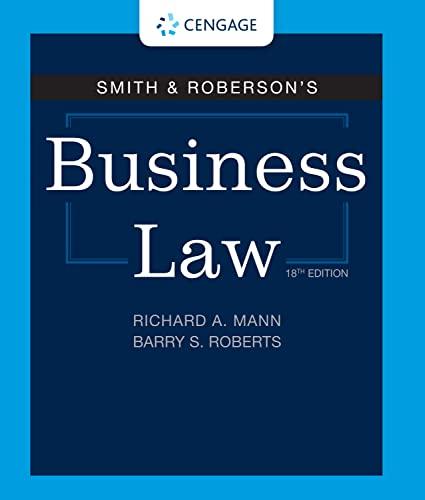Question
1. Crimes are usually classified by type and degree. The degree of an offense will generally determine the punishment range. Research and discuss the types
1. Crimes are usually classified by type and degree. The degree of an offense will generally determine the punishment range. Research and discuss the types of crimes where the degree of the offense is generally determined by the criminal act that is committed, and contrast those with crimes that are differentiated by the criminal mind that exists when the act is committed (e.g., theft offense, drug offense, homicide offenses).
2. What is the theory behind lessening the liability of the accessory after the fact, when that person who provides assistance, aid, and concealment from the authorities used to be punished the same as a principal offender?
3. Outline the requirements of self-defense and explain what they mean (good faith belief, imminent danger, threat of harm, proportionate use of force to repel attack).
4. Is competency and insanity one in the same? How is it determined if the offender in question was legally competent at the time of his/her crime or insane? Who makes the determination? Based on your readings and research, is it possible to be diagnosed insane at the time of the incident and competent to stand trial after? What are the consequences of such a finding?
Step by Step Solution
There are 3 Steps involved in it
Step: 1

Get Instant Access to Expert-Tailored Solutions
See step-by-step solutions with expert insights and AI powered tools for academic success
Step: 2

Step: 3

Ace Your Homework with AI
Get the answers you need in no time with our AI-driven, step-by-step assistance
Get Started


